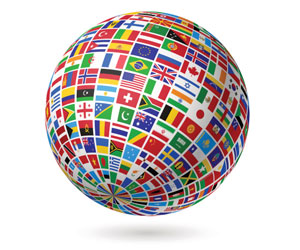A Multicultural Mindset Can Bolster Your Career Prospects
 Many leading companies are taking a stand on diversity. They’re actively seeking new hires from different backgrounds and cultures, following the logic that new people can shake up the status quo with fresh insights and unknown perspectives.
Many leading companies are taking a stand on diversity. They’re actively seeking new hires from different backgrounds and cultures, following the logic that new people can shake up the status quo with fresh insights and unknown perspectives.
It’s not difficult to see why — popular support for such initiatives is at an all-time high. Edward Jones, a leading financial advising firm, just commissioned a survey to see how more than 2,000 adults feel about multiculturalism in the workplace. More than 80% of minority respondents and 66% of people overall said it makes financial sense to hire a diverse group of individuals, and that doing so is likely to instill trust in clients.
But apart from the public support for such initiatives, what tangible effects does multiculturalism actually bring to the workplace? There may be as many negative aspects as there are positive. It’s possible, for instance, that differing perspectives and backgrounds may actually cause frequent miscommunications, potentially slowing down productivity.
But when it comes to boosting creative and integrative thinking, multicultural engagement is clearly a positive. According to a new study in Social and Personality Psychology, individuals who adapt and learn about new cultures gain a boost in complex, integrative thinking — a trait that translates to more job opportunities.
Researchers from INSEAD, Tel Aviv University, and Columbia University interviewed 115 full-time MBA students at an international business school. These particular students were a culturally diverse group representing 39 different countries, an ideal sample for studying how multicultural engagement affects real-world outcomes.
At the beginning of their MBA schooling — and then again after graduation — the participants wrote an essay on the pros and cons of working in multicultural teams. At each of these time points, judges carefully read each essay and rated them on their level of complexity. Some essays drew simple conclusions (e.g. “working in a multicultural team promotes different perspectives, but could also slow down productivity.”)
But others were more nuanced. (e.g., “the pros and cons actually originate from the same cause: different mindsets. Differences are sometimes beneficial and sometimes problematic depending on the situation.”)
In this case, the student conceptually linked the two different elements. As the researchers discovered, a student’s approach to the highly multicultural environment — a willingness to adapt to new ideas and to learn about new cultures — predicted his/her ability to conceptually link different ideas.
That skill, in turn, was critically important for predicting a student’s job opportunities later on — the more integrative and complex thinking, the more job opportunities he/she had.
The researchers attribute these correlations to several factors. It’s possible, for instance, that the students’ integrative complexity allowed them to better handle multiple rounds of interviews and challenging questions. They may have also demonstrated more creativity in solving complicated business problems.
In any case, these results support the notion that increased diversity — and one’s psychological approach to that diversity — could have tangible benefits for companies and organizations looking for more thoughtful, well-rounded employees.





Comments
Is there a link to the article?
Here is the article: http://spp.sagepub.com/content/early/2013/12/10/1948550613515005.abstract
APS regularly opens certain online articles for discussion on our website. Effective February 2021, you must be a logged-in APS member to post comments. By posting a comment, you agree to our Community Guidelines and the display of your profile information, including your name and affiliation. Any opinions, findings, conclusions, or recommendations present in article comments are those of the writers and do not necessarily reflect the views of APS or the article’s author. For more information, please see our Community Guidelines.
Please login with your APS account to comment.